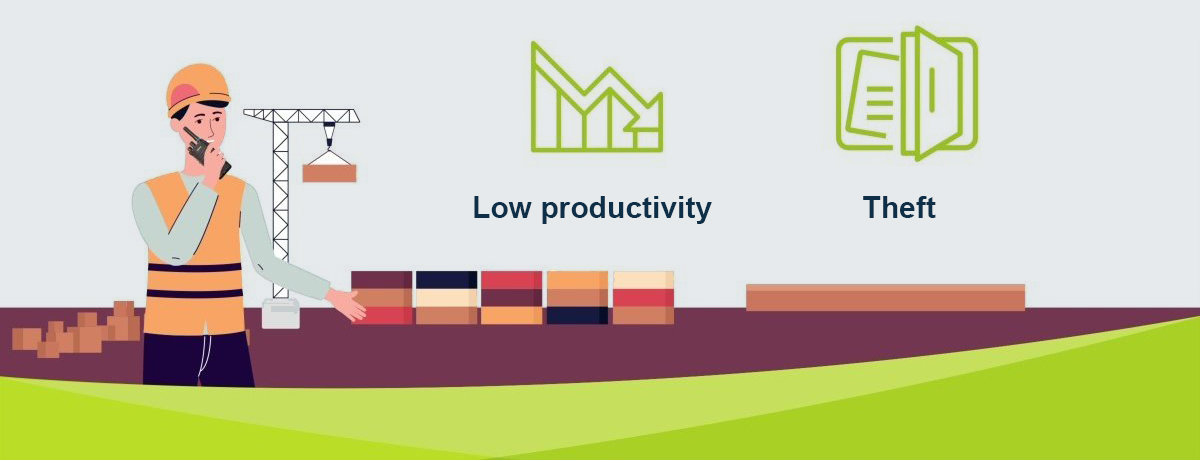The true cost of not investing in Two-way radio solutions
The UK economy has been badly hit by the impact of the COVID-19 pandemic. The economic fallout means that job losses and cost-cutting measures are now high on the agenda for many industries and businesses. Equipment budgets, including communications systems such as two-way radios, may well be on the list of resources to cut.

Blog by Simon Ingram, Head of Technical, Hytera UK
If one or more employees miss an announcement about a shift change, for example, it could mean hours of wasted time, loss of productivity and potentially the failure to fulfil important tasks or complete customer orders on time. The cost of one instance of this could easily pay for a radio.
Two-way DMR and PoC radios deliver instant, push-to-talk voice services with crystal clear audio and support individual, group, broadcast and emergency calling. The group calling capability means managers can communicate with large numbers of staff simultaneously, which is much faster and more efficient than trying to contact them all individually by mobile, fixed phone or messaging. Instant, push-to-talk (PTT) communications can improve efficiency and worker productivity levels, as time is not wasted trying to contact the right person or group of people. Group calling makes it much easier to direct and coordinate teams of people enabling tasks to be carried more efficiently and to deliver a better service.
In some industries, downtime caused by poor communications can be financially punitive. The main function of an airport is to ensure flights take off on time and on schedule. Aircraft turnaround times are tight and every second counts - and costs. For this reason, airport ground handlers have relied on private two-way radios for decades to ensure efficient, reliable, always available communications.
The cost of delaying a fully loaded 747 can be up to £20,000 a minute. The last thing any airline needs, therefore, is an unreliable communications system resulting in inefficient aircraft handling procedures and delayed flights.
Good customer service often relies on staff being able to instantly communicate with supervisors or colleagues if there is a situation that needs resolving or to quickly access information to answer a customer query. Failure to swiftly resolve issues leads to a poor reputation among customers who will then not recommend the shop, restaurant or entertainment venue, which will hit revenues.
National critical industries such as utilities need to know immediately if there is a problem with electricity, gas or water distribution grids. Failure to provide these basic services can result in massive fines from regulators, reputational damage, environmental damage, potential loss of life and severe disruption to industry and the general public. For this reason, utilities, mining, oil and gas, chemical companies and other manufacturing industries rely on private two-way radio systems with high levels of redundancy to ensure teams can be quickly organised and dispatched to deal with problems even if the mains power is unavailable, for example. The risks of not being able to respond quickly and effectively are simply too high. Without reliable two-way communications this simply could not be done.
In the retail sector, properly equipped staff and security guards can help to deter and reduce theft. The British Retail Consortium’s Retail Crime Survey published in March 2020 reported that despite spending £1.2 billion on crime prevention, losses resulting from retail crime in 2019 increased to £1.0 billion, including over £770 million from customer theft. This makes a total cost from crime and crime prevention of £2.2 billion, an increase of 16% from the previous year (£1.9 billion).
Poor safety provision can lead to loss of confidence among staff, which may lead to lower productivity, absenteeism, and resignations, which means finding and training replacement staff. In customer facing sectors like retail, hotels, sports and entertainment, if customers feel unsafe they will stay away and that will have a financial and reputational impact on the business. Two-way radios provide employees with added protection thereby making them feel safer and more motivated in their jobs.
Accidents or emergencies can be avoided if staff have reliable radios and are able to quickly report health and safety issues, which can then be addressed before they become a problem.
Radios with alarms also help employers meet their duty of care obligations to ensure the safety of their employees in the workplace under Health & Safety at Work regulations.
The risk of not providing employees with safety protection can be high in terms of injury lawsuits, fines and claims. Death and loss of life at work can carry a high price for employers if they are shown to be negligent in their duty of care. The reputational damage to the organisation can also be high, making it harder to recruit staff and win future work. The cost of not addressing issues such as safety, theft, potential injury and loss of life of employees, environmental damage from industrial accidents and the failure to deliver key services can be high in terms of insurance rates in the long term. A good communication system easily pays its way when looked at in these terms.
Despite the current economic situation, it should be clear from the above that the last thing industries and businesses should skimp on is a good quality, reliable communication system. A poor quality and inadequate communications solution is a false economy at any time, but particularly now when organisations need to do more with less.
Blog by Simon Ingram, Head of Technical, Hytera UK
11 September 2020

